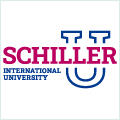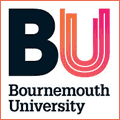* To know and appreciate the economic dimension of tourism.
* To analyze the impact of tourism.
* To utilize information and communication technologies in the different fields of tourism.
* To analyze, synthesize, and summarize critically economic-asset information from touristic organizations.
* To understand the evolving and dynamic character of tourism and the new leisure society.
* To understand the workings of the different touristic structures and their business sectors world-wide.
* To understand the principles of tourism: its social, spatial, cultural, legal, political, labor, and economic dimensions.
* To communicate in foreign languages, both written and spoken.
* To understand the legal framework that regulates tourism activities.
* To know the operative processes of lodging, restoration, and of the distribution and mediation companies.
* To manage different kinds of tourism organizations.
* To detect technical planning needs in infrastructure and tourist installations.
* To manage touristic territory in accord with the principles of sustainability.
* To identify and manage touristic areas and destinations.



